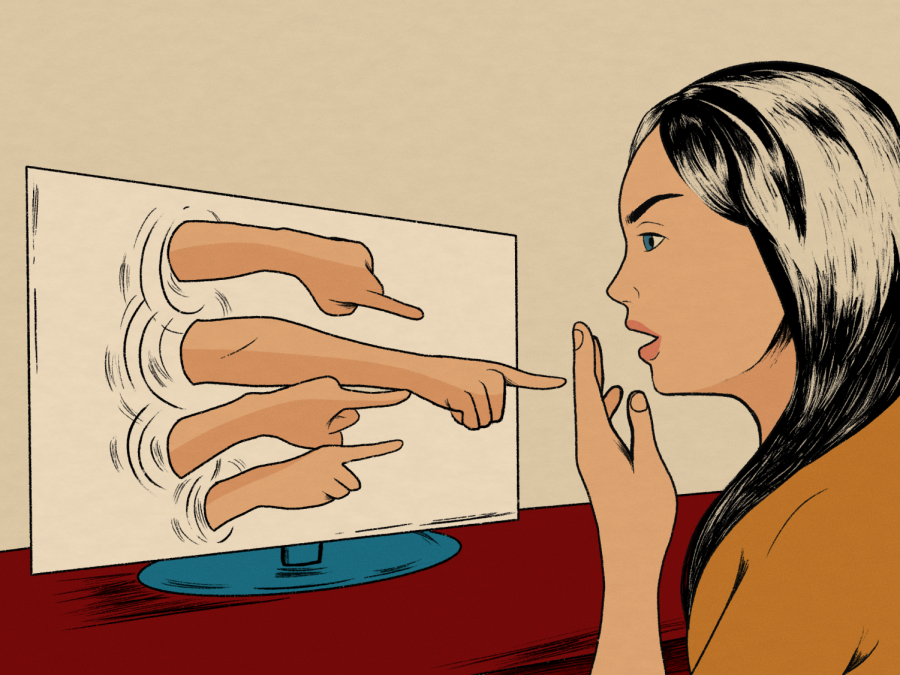Cancel culture isn’t real — just look at Matt Damon
It’s easy to diminish the validity of “cancelation” and label any and all criticism as a product of mob mentality, but referring to all criticism as canceling equates harmful views or actions with genuine mistakes.
Let’s set things straight: When a celebrity loses fans for problematic opinions, they aren’t being canceled. When someone loses their job for harassment, they aren’t being canceled. Since it entered the mainstream, we’ve turned “cancel” into such a buzzword that nobody really knows what it means anymore.
Cancel culture isn’t a new topic to harp on — the take that “cancel culture is ruining society” isn’t quite so revolutionary anymore. But as much as we complain about our faves getting canceled, it’s hard to tell what modern cancellation entails.
YouTuber David Dobrik was complicit in the rape of an intoxicated college student. After we “canceled” him, he lost a couple of sponsorships but is now more popular than ever.
Musician Morgan Wallen was “canceled” by radio stations after he was caught using racial slurs on tape, but his music sales continued to soar. He’s back to performing and has an upcoming new single.
Matt Damon, who admitted to using the f-slur as recently as a few months ago, was “canceled” exclusively on Twitter, with no other repercussions for his actions.
How did cancel culture begin? It entered the mainstream in 2015 as a way to stop supporting public figures whose views or actions you disagreed with. It’s since escalated into a usually performative way of blasting people for their mistakes under the guise of political correctness. We blame cancel culture for fostering a narrow-minded Gen Z, one that doesn’t let people learn from their past.
Now, if we criticize a celebrity for something — no matter how wrong — we’re “canceling” them. This has led people to whine about cancel culture as a product of sensitive “snowflakes,” as if the only people we’re trying to cancel are comedians who made sexist jokes in 2005. But this completely erases any capacity for nuance and shades of severity.
It’s true that people who misspoke 10 years ago probably don’t deserve to be de-platformed. But the same can’t be said for the dozens of celebrities who walk away from rape or abuse allegations completely unscathed, with a shiny new project announced within the next week.
In both cases, the public deems all criticism cancel culture, despite being applied to egregiously different situations.
Cancel culture makes us think of people who purposefully dig up dirt on celebrities or spread clips of politically incorrect statements from a decade ago. We associate it with bullying and death threats and an inability to see things through an objective lens.
It’s easy to diminish the validity of “cancelation” and label any and all criticism as a product of mob mentality. It justifies holding no celebrities accountable at all, which means you never have to confront the decision of choosing whether or not to continue supporting them. So long as it’s labeled cancel culture, you can still enjoy their content and hold the moral high ground.
But referring to all criticism as canceling equates harmful views or actions with genuine mistakes. We shouldn’t be treating crimes as serious as sexual assault like they’re at all comparable to mildly insensitive jokes, especially when the stakes have devolved to being bullied on Twitter before the news cycle moves on — trust me, the multimillionaires can handle it.
Instead of jumping to the blanket solution of cancelation, we should examine each situation for its own nuances. The next time cancel culture inevitably strikes, it’s important not to be swept up by mob mentality — not only the mob mentality that we should condemn all wrongdoers, but also the mob mentality that all criticism is illegitimate.





